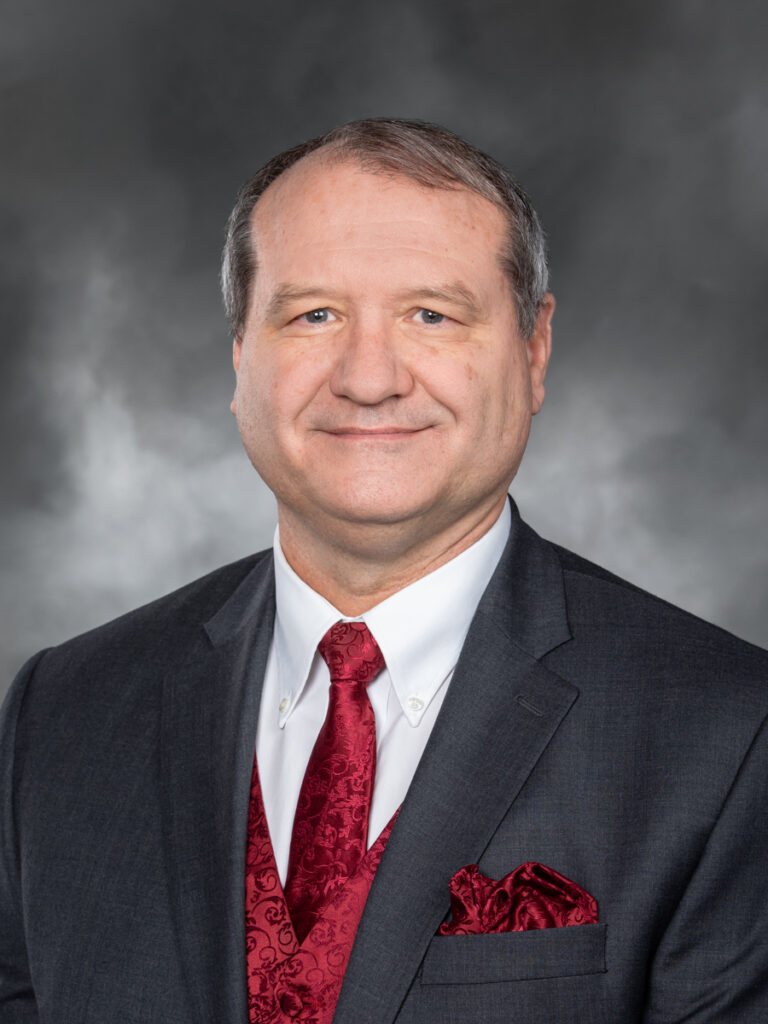Note: The following e-newsletter was sent to Sen. Leonard Christian’s subscribers Oct. 31, 2025. To subscribe to Sen. Christian’s e-newsletters, click here.

Washington taxpayers are spending millions to settle lawsuits stemming from mismanagement at Green Hill School, the state’s high-security facility for dangerous juvenile offenders.
Dear Friends and Neighbors,
 The way things have been going lately in Washington state’s juvenile rehabilitation system, I don’t think anything can surprise us. Consider the recent case of a corrections officer at Green Hill School. This month she was sentenced to 84 months in prison.
The way things have been going lately in Washington state’s juvenile rehabilitation system, I don’t think anything can surprise us. Consider the recent case of a corrections officer at Green Hill School. This month she was sentenced to 84 months in prison.
Green Hill, located on the outskirts of Centralia, is where we send the worst of the worst, the juvenile equivalent of the state pen at Walla Walla. One of the reasons this guard is going to prison is that she smuggled drugs to inmates inside. Another is that she had intimate relations with a double murderer in a linen closet and proudly videoed the whole thing. KING-5 tells us that Lewis County prosecutors presented the video evidence in court, and we can only imagine the scene.
Now, once is bad enough, but would you believe this is a pattern? Another Green Hill guard is awaiting sentencing after pleading guilty in another sex-tape case just like this one. I wish I could say there is something shocking about this, but dysfunction seems to be the norm at Green Hill, where staff misconduct has resulted in at least 21 referrals for criminal prosecution over the last four years.
As ranking Republican on the Senate Human Services Committee, I am deeply concerned about the chaos that has engulfed our juvenile rehabilitation system. It’s time we draw the line.
Problem is systemic
Conditions at Green Hill have rapidly deteriorated since 2021. Drug use is rampant, overdoses are commonplace, and violence is a constant problem. In 2024, the Lewis County prosecutor’s office charged about 140 counts of “prison riot” at Green Hill. At least my colleagues in the Legislature’s majority party found a way to solve that problem. They passed a law preventing juveniles from being prosecuted on riot charges.
This mismanagement costs us plenty. Last year Washington state paid $21 million to settle two lawsuits from juvenile inmates about the state’s negligent supervision. One of them involved an inmate who consumed drugs behind bars, overdosed and then blamed the state for it. A new suit comes from one of the inmates involved in the sex-tape scandal – he says he was coerced. I wish I was making this up.
Problems can be traced to a 2021 policy change that aimed to go gentler on juvenile crime. Our colleagues call it “JR to 25.” Rather than sending juvenile offenders to adult prison at age 21, they are kept in the separate juvenile system through age 25. The idea is to shield them from the baleful influence of hardened adult criminals.
What this has done is to turn our juvenile institutions, Green Hill in particular, into overcrowded storage facilities where older, more dangerous juvenile offenders rule the roost. The overcrowding has been worsened by decisions made by our majority colleagues over the last 15 years to close other juvenile institutions so that the Legislature might consider “alternatives to incarceration.” And of course there never really are any good alternatives, because the juveniles in question are guilty of some pretty nasty crimes, up to and including murder, and they should be incarcerated. So the state just keeps packing them in and double-bunking the cells. Some of the overcrowding will be alleviated when a new juvenile facility costing $60 million is opened near Aberdeen. But the whole mess might have been avoided if our policies had made sense in the first place.
Bill would examine education programs
JR to 25 has to go, of course. Republicans are agreed on that, even if our majority colleagues aren’t ready to admit defeat. Other policies need scrutiny as well.
I am preparing legislation for 2026 to require a comprehensive review of the educational programs we offer to offenders. The “R” in JR stands for rehabilitation, but our programs miss the mark. The Department of Children, Youth and Families, which oversees the JR system, offers college-level academic programs through public colleges and universities. I have the utmost respect for juveniles who are able to shut out the distractions and complete their degrees behind bars, but for the most part this is a dubious use of limited resources. I don’t see many employers looking for former juvenile delinquents to fill accounting positions and other white-collar jobs.
The Department of Corrections, which oversees the adult prison system, takes a different approach. It offers training in skilled trades, with the idea that ex-cons are more likely to find employment in construction and mechanical fields.
We need to take a rigorous look at this issue. There are strong indications that DOC’s approach not only is more effective but cheaper. DOC pays $72,000 a year for each adult prisoner, while DCYF pays a staggering $318,000 for each juvenile. And when so many families struggle to put their kids through college, we also must consider issues of equity. I just don’t think free college tuition is an appropriate reward for criminal behavior, any more than conjugal visits with prison guards in linen closets — then suing the state for millions.
Town hall meeting coming up
Starts 10 a.m. Nov. 15 at CenterPlace Regional Event Center
Here’s your reminder for our upcoming town hall meeting in Spokane Valley on Saturday, Nov. 15. I hope you can join us! We’ll be meeting at the CenterPlace Regional Event Center, 2426 N. Discovery Place, starting at 10 a.m. We’ll have plenty to talk about as the 2026 legislative session approaches and our Puget Sound colleagues contemplate another round of major tax increases.
Gas prices re-enter the stratosphere
Washington ranked No. 1 in September – meanwhile B.C. rolls prices back

Washington state right now ranks No. 3 for the highest gas prices in the country, and it’s not for lack of trying. In September we were the highest, a full dollar-and-a-half above the national average. But since then, those pesky Californians have managed to overtake us at $4.57 for a gallon of unleaded regular, and Hawaii has snuck into the picture at $4.48. The latest survey from the American Automobile Association ranks us third at $4.30.
Wherever we stand, I want to make sure credit goes where it is due, to the policies adopted by our majority colleagues in the Legislature to deliberately raise the price of gasoline. The Climate Commitment Act adds about 50 cents a gallon by requiring refiners to purchase “credits” at auction for tailpipe emissions. It’s complicated. Just think of it as another tax on gasoline, even if they don’t call it that. It’s going to get a lot more expensive in the future, too, as the state starts ratcheting up its low-carbon fuel standards program. We’re already starting to feel the impact on the cost of living – have you been to the grocery store lately? But there have been a couple of interesting developments this past month.
The first is that members of the Legislature are joining the Washington Policy Center in a lawsuit to force the Department of Ecology to reveal data about the program. For instance, does this program do any good? We don’t know, because Ecology has refused to comply with legal requirements that it measure the results and reveal its findings publicly. Smells a little suspicious, don’t you think? A judge ruled this summer that third party organizations can’t sue by themselves but said the Legislature had standing. Hence the new lawsuit involving legislators.
The second is that our Canadian friends have decided to junk wildly unpopular carbon taxes that were having the same effect north of the border. The Canadian federal government eliminated its carbon tax and British Columbia has followed suit by eliminating a separate provincial tax. The price of gas and heating oil already is coming down. Sounds like those Canadians may be on to something.
Thanks for reading,

Leonard Christian
4th Legislative District
Contact me!
If you have a comment about state government, or a concern with a state agency, I hope you will reach out to my office. My most important duty is to serve you.
Mailing address: Post Office Box 40404, Olympia, WA 98504
Email: Leonard.Christian@leg.wa.gov
Phone: (360) 786-7606
Leave a message on the Legislative Hotline: 1 (800) 562-6000
To unsubscribe, visit the link to the Subscriber Preferences Page below.









